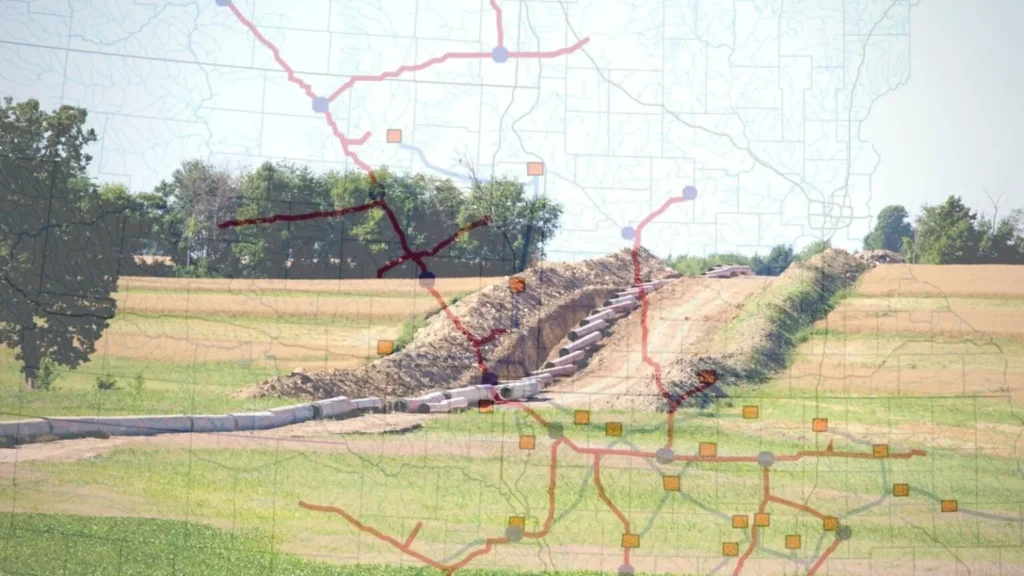Montevideo, MN, September 13, 2023 — On September 11th, the South Dakota Public Utilities Commission (SD PUC) denied Summit Carbon Solutions’ (Summit) application for the company’s proposed CO2 pipeline. The decision was based on concerns raised by four counties that Summit would violate those counties’ setbacks requirements. The setbacks are intended to protect those living and working near these high-pressure and potentially dangerous pipelines from the effects of a rupture or leak. According to the SD PUC, Summit would, by its own admission, be unable to comply with those setback requirements, and did not obtain authority to override those setbacks. Without proof that the proposed project will abide by all local laws, the project cannot move forward, and the PUC denied the permit. In the initial motion to deny filed last Friday, SD PUC staff also questioned Summit’s willingness to cooperate with affected communities, saying, “Summit’s history of litigation in South Dakota causes Staff to question the willingness of Summit to work with the counties.”
This ruling comes on the heels of a September 6th decision by the SD PUC to reject Navigator CO2’s application for a permit to construct its Heartland Greenway carbon capture pipeline. In that instance, the commission also unanimously denied the company’s request to preempt county pipeline setback ordinances. In issuing the denial, Commissioner Kristie Fiegen stated that “The burden of proof is on the applicant” and that the proposer must show that the project will not harm the public’s social, environmental, and economic well-being.
Why is this important to Minnesota?
Summit is proposing to build over 240 miles of its five-state CO2 pipeline project in Minnesota, but only the application for the Otter Tail and Wilkin Counties portion of the project is currently before the Minnesota PUC and undergoing environmental review. On the ground in the ten impacted Minnesota counties, Summit has been waging an aggressive public relations campaign—buying billboards, advertising in local papers, and sponsoring county fairs—to showcase themselves as a great partner and their CO2 pipeline project as a great panacea for rural Minnesota and farmers. Summit is continuing to press landowners to sign pipeline easements despite many continually expressing that they will not sign any easement Summit offers under any circumstance.
However, the SD PUC ruling raises important questions about Summit’s ability and willingness to listen to Minnesota community concerns, especially regarding safety and setbacks. In Minnesota, the proposed route skirts residential areas in several communities across the ten-county footprint. No site-specific rupture models have been conducted for these pipelines to help the public, the Minnesota PUC, or Summit itself, determine the potential impact radius of a rupture or leak.
The decision by the SD PUC also highlights the importance of listening to and engaging with communities impacted by CO2 pipelines. People living and working along Summit’s proposed pipeline route in all five states have clearly and repeatedly expressed that they do not want this project because of its questionable economic and environmental benefits and communities’ unanswered concerns about health and safety risks. The SD PUC ruling shows that South Dakota regulators understand that without community support and proof that a project proposer will abide by all local rules, a project cannot and should not move forward.
Whether this latest denial will impact the permitting process in Minnesota remains to be seen. CURE previously argued to the Minnesota PUC that North Dakota’s denial of Summit’s permit should prompt a pause in the permitting process in Minnesota. Allowing uncertainties in other states to be hammered out before continuing the process in Minnesota could save the PUC from costly do-overs and restarts. Now, both North and South Dakota have denied Summit’s permits. And public hearings on Summit’s permit before the Iowa Utilities Board have revealed significant gaps in our collective understanding of CO2 projects of this scale. Still, the PUC has so far declined to pump the brakes on the permitting process here in Minnesota.
To keep informed and to learn more about the proposed CO2 project in Minnesota, visit www.carbonpipelinemn.org
CURE is rural-based, with staff across Minnesota. CURE knows rural people, lands, and ecosystems are vital to helping solve some of the biggest problems Minnesota and the country face. We help to tell the story of a vibrant rural future, lift-up people to lead, and work for policies and laws to make a better future possible for everyone.
###


